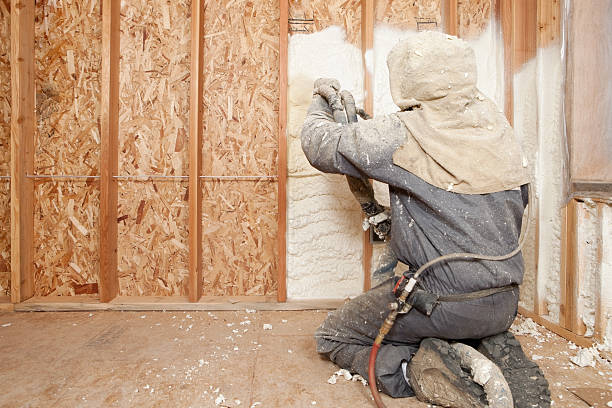Insulating your home is one of the most effective ways to enhance the efficiency of your air conditioning system. Good insulation helps maintain a stable indoor temperature, reducing the workload on your AC unit. This not only leads to lower energy bills but also extends the life of your air conditioning system. Let’s delve into how insulation impacts air conditioner efficiency through various aspects.
How Insulation Works
Insulation acts as a barrier to heat flow, trapping air to keep your home warm in the winter and cool in the summer. The primary function of insulation is to reduce heat transfer by creating a thermal envelope around your house. This helps in maintaining a consistent indoor climate, requiring less effort from your AC unit to cool the space.
Types of Insulation Materials
Several types of insulation materials can be used in homes, each with unique properties and advantages. The most common materials include fiberglass, cellulose, foam board, and spray foam. Fiberglass is widely used due to its cost-effectiveness and ease of installation. Cellulose is eco-friendly and offers excellent thermal resistance. Foam board provides high insulation value with less thickness, making it ideal for tight spaces. Spray foam is versatile and offers superior air-sealing properties, filling gaps and cracks for optimal insulation.
Insulation and Air Leakage
Air leakage is a significant factor that affects the efficiency of air conditioning systems. Poorly insulated homes often have gaps and cracks that allow conditioned air to escape and outdoor air to enter. This can significantly increase the workload on your AC unit, making it less efficient. Installing proper insulation helps seal these gaps, minimizing air leakage and enhancing the overall efficiency of your air conditioner.
The Role of R-Value
The efficiency of insulation is measured by its R-value, which indicates its resistance to heat flow. The better the insulation's capacity to thwart heat transfer, the higher its R-value. Different areas of your home require different R-values based on climate and construction type. For instance, attic insulation typically needs a higher R-value than wall insulation due to the higher temperature differential. Choosing insulation with the appropriate R-value for your home ensures optimal air conditioning efficiency.
Benefits of Insulating Key Areas
Certain areas of your home can significantly benefit from insulation, directly impacting your AC’s efficiency. Attics, walls, floors, and basements are critical areas that should be well-insulated. Attic insulation prevents heat from entering your home during the summer and escaping during the winter. Wall insulation reduces heat transfer between the outdoors and indoors. Floor insulation is crucial for homes with unconditioned basements or crawl spaces. Insulating these key areas helps maintain a consistent indoor temperature, reducing the strain on your AC unit.
Cost-Benefit Analysis
Investing in insulation can save you money in the long run by reducing energy consumption and prolonging the life of your air conditioning system. While the initial cost of insulation materials and installation might seem high, the long-term benefits outweigh these expenses. Insulating your home can reduce your energy bills by up to 30%, leading to substantial savings over time. Additionally, a well-insulated home experiences less wear and tear on the AC unit, decreasing repair and replacement costs.
Environmental Impact
Enhancing your home’s insulation not only improves air conditioning efficiency but also has a positive impact on the environment. Reduced energy consumption lowers greenhouse gas emissions, contributing to a smaller carbon footprint. Eco-friendly insulation materials, such as cellulose and recycled fiberglass, further minimize environmental impact. By insulating your home, you’re making a sustainable choice that benefits both your household and the planet.
Professional vs. DIY Insulation
When it comes to installing insulation, you have the option of doing it yourself or hiring a professional. DIY insulation can be cost-effective and is feasible for small, accessible areas. However, professional installation offers several advantages, especially for larger or more complex projects. Professionals have the expertise to choose the right materials, ensure proper installation, and identify areas that may need additional sealing. While the upfront cost might be higher, professional installation ensures optimal efficiency and long-term performance. Additionally, in unforeseen scenarios where insulation issues might lead to a need for emergency air conditioner repair, having a professionally installed system can minimize disruptions and ensure quick resolution.
Conclusion
The impact of insulation on air conditioner efficiency cannot be overstated. Proper insulation reduces heat transfer, minimizes air leakage, and helps maintain a stable indoor climate. By investing in high-quality insulation materials and ensuring key areas are well-insulated, you can significantly enhance your AC’s efficiency, reduce energy bills, and contribute to a healthier environment. Whether you choose to tackle insulation as a DIY project or hire a professional, the benefits of a well-insulated home are clear and compelling.
